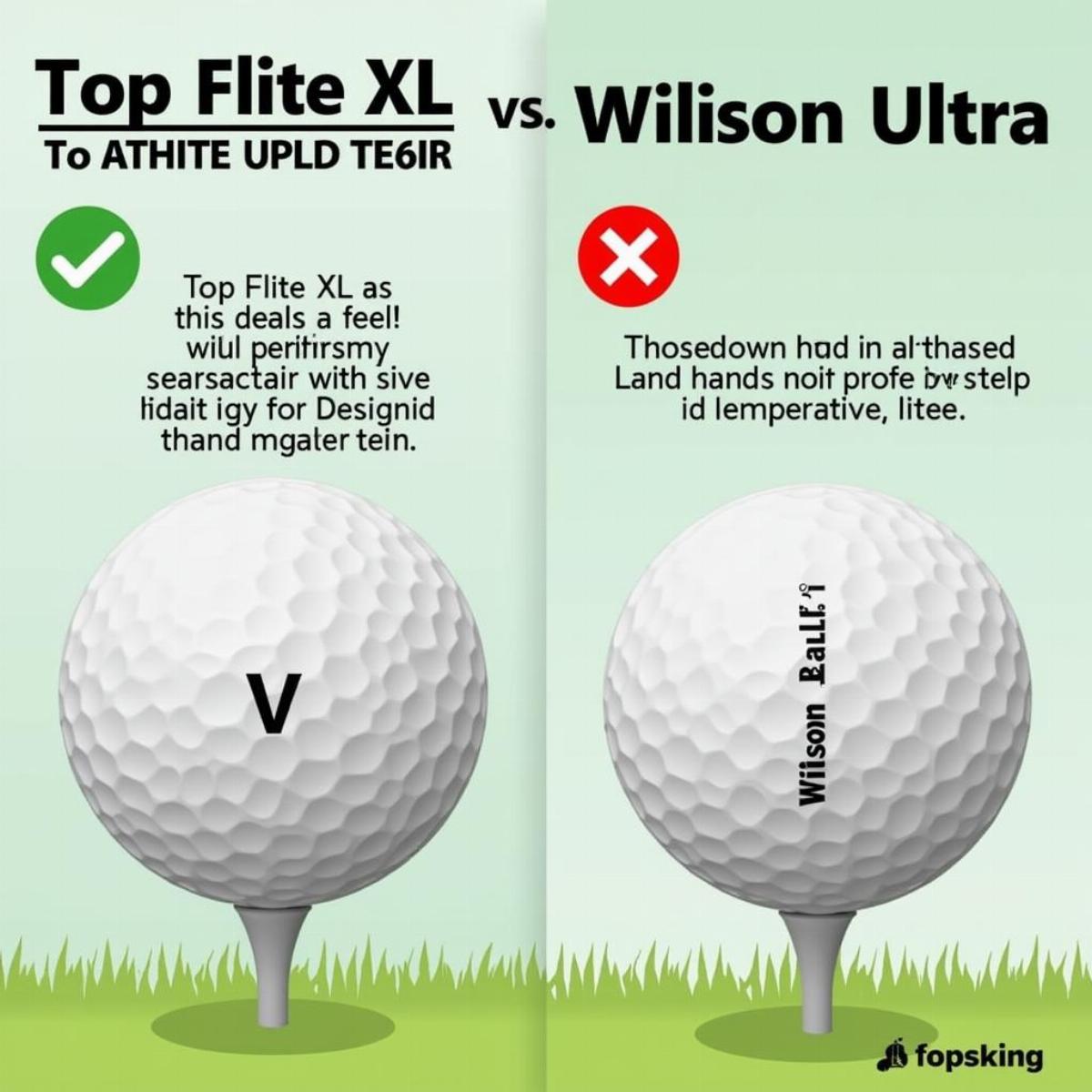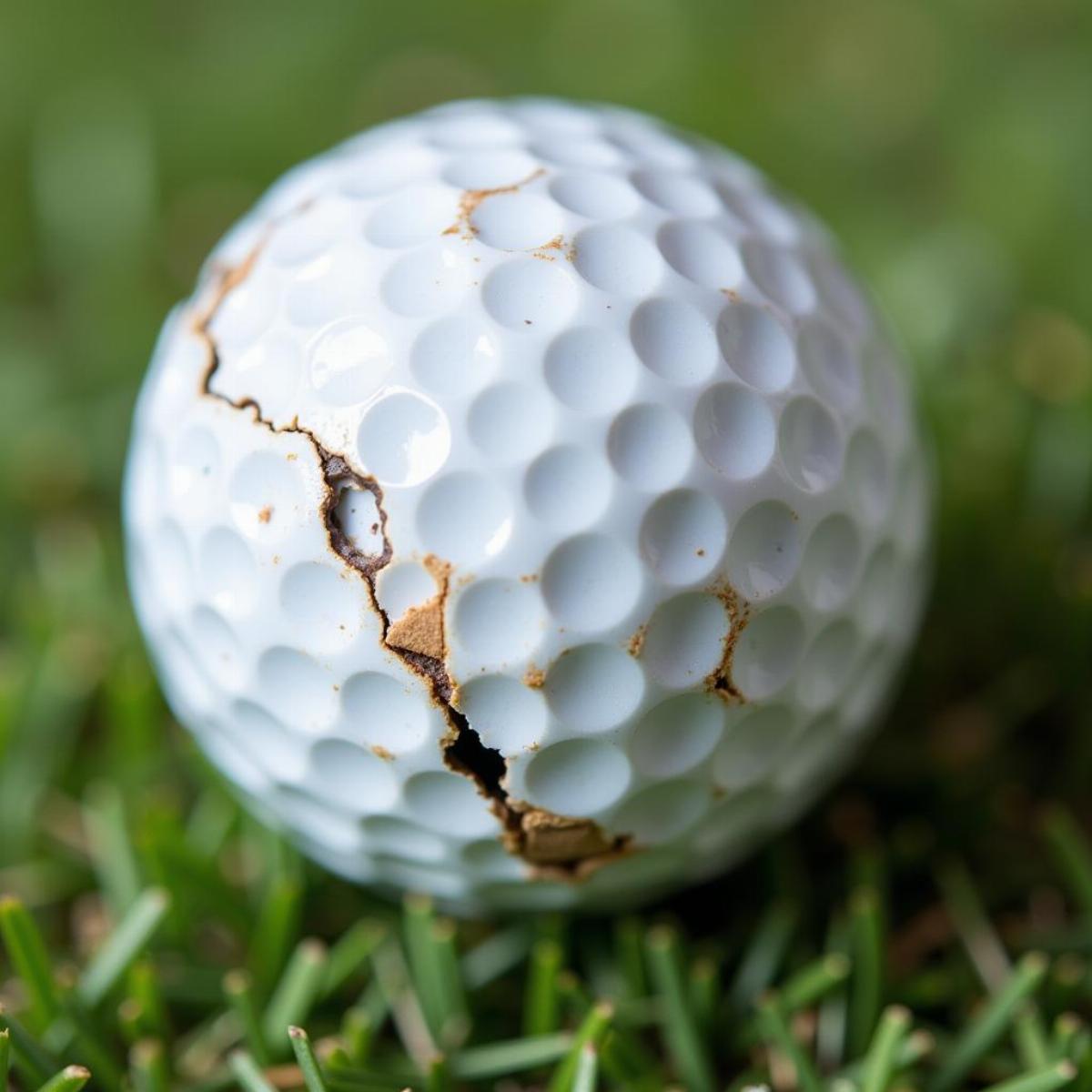worst golf balls for high handicappers

Golf is a sport known for its challenges, and for high handicappers, the choice of golf balls can significantly impact their game. Selecting the right ball can contribute to improving accuracy, distance, and overall player enjoyment. However, the wrong choice could lead to frustration and unnecessary struggles. In this guide, we’ll take a humorous look at some of the worst golf balls that high handicappers should steer clear of, and why.
Why Golf Balls Matter for High Handicappers
Before we dive into our list, it’s essential to understand why golf balls are vital for high handicappers. Golf balls have specific characteristics, like compression, spin rate, and cover material, that can affect your performance. For players just starting or those who find themselves struggling, the wrong ball can thwart efforts to improve.
Key Characteristics of a Good Golf Ball for High Handicappers
- Soft Feel: A soft cover helps with better feel on chips and putts.
- Low Spin: High-handicappers should look for balls with low-spin characteristics to minimize hooks and slices.
- Distance Focused: Balls designed to maximize distance can help beginners reach the green more easily.
- Durability: A durable ball will stand up to repeated hits, allowing for a longer lifespan.
Ultimately, the goal is to find a ball that complements your swing speed and playing style.
The Worst Golf Balls for High Handicappers
1. Top Flite XL
Overview: Popular for their low price, but performance leaves much to be desired.
- Feel: Hard and unforgiving at impact.
- Spin: High spin rate can lead to undesirable hook/slice behavior.
- Durability: While durable, the lack of softness makes it tricky for chipping.
Recommendation: Avoid if you are looking to improve feel and control around the greens.
2. Wilson Ultra
Overview: Another budget option that misses the mark.
- Feel: Too firm, offering little feedback on shots.
- Distance: Low quality can limit players from achieving maximum distance.
- Ball Flight: Inconsistent flight paths can confuse players.
Recommendation: If you want to work on accuracy and distance, look elsewhere.

3. Noodle Long & Soft
Overview: On the surface, it seems attractive, but it’s overrated for high handicappers.
- Feel: Mediocre at best, lacking the responsiveness needed for improved play.
- Spin: While marketed to create shot-stopping power, high spin can lead to control issues for these players.
- Value: There are better value options available.
Recommendation: Choose something more reliable to improve your game.
4. Pinnacle Exception
Overview: Priced low, this ball suffers from its budget-friendly nature.
- Feel: Hard and unyielding, making it less forgiving on shots.
- Performance: Lacks distance and height, making approach shots more challenging.
- Durability: While tough, lacks a soft touch for green-side play.
Recommendation: Avoid this ball as it will not help in lowering your handicap.
5. Maxfli Softfli
Overview: Might be appealing, but it’s not suitable for most high-handicappers.
- Feel: While softer, it does not provide optimal distance.
- Spin: Creates too much spin that can result in erratic shots.
- Performance: Inconsistent in low wind conditions.
Recommendation: Better options exist that provide both feel and distance.
Comparative Table of Worst Golf Balls for High Handicappers
| Brand | Feel | Spin | Distance | Durability |
|---|---|---|---|---|
| Top Flite XL | Hard | High | Below Avg | Good |
| Wilson Ultra | Firm | Low | Below Avg | Fair |
| Noodle Long & Soft | Mediocre | High | Average | Good |
| Pinnacle Exception | Hard | Low | Below Avg | Excellent |
| Maxfli Softfli | Soft | High | Below Avg | Fair |
What to Look for Instead
When choosing a golf ball as a high handicapper, consider these alternatives:
- Srixon Soft Feel: Exceptional feel and low spin for straight shots.
- TaylorMade Noodle: Good balance of distance and feel that can help improve performance.
- Vice Drive: Offers distance and durability without the high price tag.
Common Misconceptions about Golf Balls for High Handicappers
- “You have to spend a lot to get a decent ball”: Not necessarily true. Many budget options perform satisfactorily for high handicappers.
- “All golf balls are the same”: Definitely false! Different balls suit varying styles and swing speeds.
- “I should always use tour-grade balls”: High handicappers often are better off sticking with balls designed for more forgiveness.
Key Takeaways
- Choose golf balls that offer a soft feel and low spin to improve your game.
- Avoid budget options that compromise performance, like the Top Flite XL or Wilson Ultra.
- Invest in user-friendly brands like Srixon or TaylorMade that enhance your game.
- Understand that your choice in golf balls can significantly affect your handicap and enjoyment.
FAQ Section
1. What golf ball should I use as a beginner?
Choose a ball designed for distance and forgiveness, such as the Srixon Soft Feel or TaylorMade Noodle.
2. Why should I avoid low-quality golf balls?
Low-quality golf balls often lack the technology that improves spin control and distance, hindering your game improvement.
3. Do high-handicappers benefit from using tour-grade balls?
Typically, no. High-handicappers often benefit from more forgiving, mid-tier balls.
4. How often should I change my golf balls?
You should change your golf balls regularly if they show signs of wear or damage. A rule of thumb is to replace them every 5-10 rounds.

5. Can certain golf balls help improve my game?
Yes, selecting the right ball that matches your swing speed and skill level can positively impact your game.
6. Are expensive golf balls worth it for high handicappers?
Not necessarily. While high-end balls might have great technology, they may not yield significant benefits for high handicappers.
7. What factors influence my choice of golf ball?
Consider your swing speed, skill level, preferred feel, and desired ball characteristics like spin and distance.
8. Can I use any golf ball for any game?
While you can technically use any ball, choosing one that suits your game can enhance your performance and enjoyment.
9. What’s the importance of golf ball compression?
Compression affects your ball’s feel and performance. High-handicappers generally do better with lower-compression balls.
10. How do I know if a golf ball works for me?
Test the ball during rounds to assess feel, distance, and control. Each player may respond differently to various ball types.
Choose wisely, and may the golf gods be ever in your favor. Happy golfing!